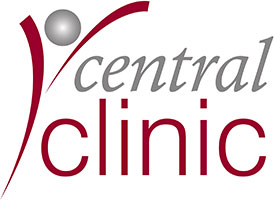ECG – Heart Checks
An electrocardiogram (ECG) is a simple test that examines the electrical conduction of the heart by looking at the heart rhythm.
The patient lies down on the bed and ten small electrodes are placed in certain areas on the chest, arms and legs. Wires are then attached to these electrodes and a ten second ECG is performed as the patient lies still. The ECG is quick and painless and generally only takes a couple of minutes.
There is no preparation for an ECG.
The Technician who performs the procedure will arrange for a Cardiologist to review the results immediately. A report will be forwarded to your referring Doctor. The report of ECG will usually be available within 24-48 hours.

Spirometry
Spirometry is the most common breathing test that measures lung function and tests how much and how fast you can move air into and out of your lungs.
It measures how much air you breathe out in one breath and how quickly the lungs can empty.
Spirometry is used to assess:
- normal lung function
- airflow obstruction
- lung restriction
After analysing and including factors such as, age, weight, sex, race and smoking status, a spirometry test is able to determine whether or not a person’s lung capacity falls within a normal range. Test available at Central Clinic.
Blood Pressure
As blood is pumped by the heart around the body, the pressure with which it pushes against the walls of blood vessels changes. When the heart is squeezing blood into the arteries, the pressure is high. When the heart is relaxed, the pressure is lower. Your blood pressure is a measurement taken of the highest reading and the lowest reading. It is given as two figures - highest (systolic) over lowest (diastolic).
What is high blood pressure?
Your blood pressure is high if the reading is higher than 140/90 mm/Hg and is considered to then put you at risk of having a heart attack or stroke (cardiovascular disease). Having a blood pressure below this figure is even better in terms of reducing cardiovascular risk. That is, you have high blood pressure if the higher figure (systolic) is higher than 140, or the lower figure (diastolic) is higher than 90, or both. This is also known as hypertension. More than 30% of
Australians over the age of 18 have high blood pressure.
Why is your blood pressure important?
Your blood pressure is important because if it is too high, it affects the blood flow to your organs. Over the years, this increases your chances of developing heart disease, stroke, kidney failure, diabetes, eye disease, erectile dysfunction and other conditions. Very occasionally, people with very high blood pressure are at serious risk of problems and need urgent treatment in hospital to reduce the risk of a stroke or heart attack. Current Australian guidelines recommend that if you have persistent raised blood pressure over 160/100, but are at low risk of having a stroke or heart attack, you should talk to your doctor or specialist about taking medication to lower your blood pressure.
INR Monitoring
International normalized ratio (INR) which is a derivative of prothrombin time is a measurement of blood coagulation in the circulatory system. Both are used to determine the clotting rate of blood which can be affected by anticoagulant usage, liver damage and Vitamin K levels.
In healthy people an INR of 1.1 or below is considered normal. An INR range of 2.0 to 3.0 is generally an effective therapeutic range for people taking warfarin for disorders such as atrial fibrillation or a blood clot in the leg or lung.
According to current guidelines, warfarin recipients should undergo international normalized ratio (INR) testing every 4 weeks. If the INR is too low, blood clots will not be prevented, but if the INR is too high, there is an increased risk of bleeding. This is why those who take warfarin must have their blood tested so frequently.

